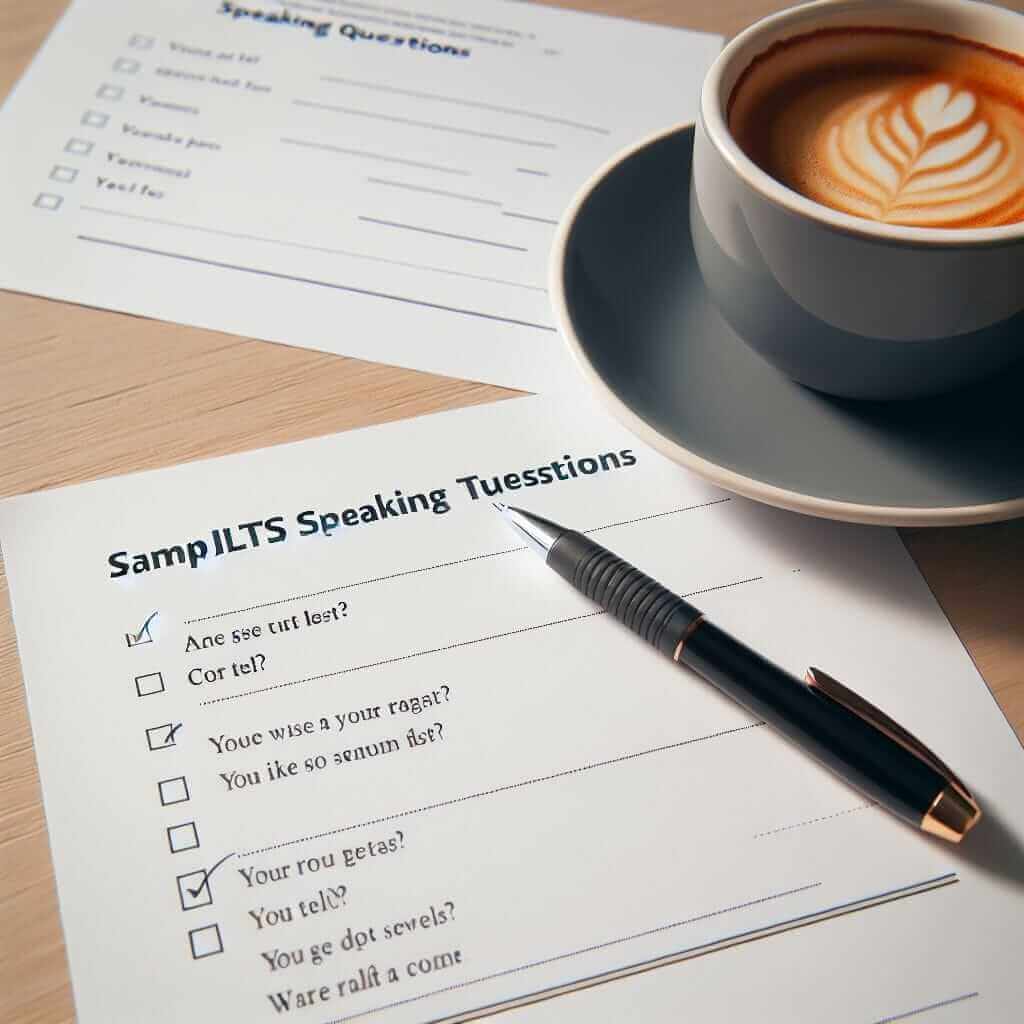In the realm of IELTS preparation, the Speaking section often presents a unique set of challenges. Many candidates, despite possessing a strong command of English, find themselves grappling with nerves, struggling to articulate their thoughts effectively under pressure. This is where understanding how to enhance your productivity in IELTS Speaking preparation becomes paramount. It’s not just about knowing the language; it’s about maximizing your preparation time to ensure you can confidently demonstrate your speaking skills on exam day.
Understanding the Importance of Productivity in IELTS Speaking
Unlike other IELTS sections where you might have more time to ponder and refine your answers, the Speaking test demands spontaneous and fluent responses. Therefore, productive preparation is key. It’s about making every minute of your practice count, ensuring that you are not just going through the motions but actively honing your skills:
- Targeted Practice: Focus on your weaker areas. Are you struggling with fluency, vocabulary, or grammar? Identify your weaknesses and tailor your practice accordingly.
- Effective Time Management: Allocate specific time slots for different aspects of Speaking preparation, like practicing for Part 1 questions, brainstorming ideas for Part 2 topics, or engaging in mock speaking tests.
- Strategic Resource Utilization: Make the most of available resources, including IELTS practice materials, online forums, and language exchange partners.
Strategies to Supercharge Your IELTS Speaking Preparation
Here’s how you can streamline your efforts and enhance your productivity:
1. Immerse Yourself in English
Daily Exposure: Surround yourself with the English language as much as possible. Watch English movies and TV shows, listen to English podcasts and music, and even try thinking in English!
Focus on Active Listening: Pay attention to how native speakers use vocabulary, grammar, and pronunciation. This will help you internalize natural language patterns.
2. Practice, Practice, Practice
Speak Aloud Regularly: Don’t just practice in your head! Speaking aloud helps you build fluency and confidence.
Record Yourself: Listening to your recordings can help you identify areas for improvement, whether it’s your pronunciation, grammar, or coherence.
Simulate Test Conditions: Engage in mock speaking tests with a timer and a partner to replicate the exam environment and manage stress levels.
3. Expand Your Vocabulary
Learn Thematically: Focus on vocabulary related to common IELTS themes like education, technology, environment, and society.
Use Flashcards and Vocabulary Apps: These tools can be highly effective for memorizing new words and their meanings.
Use New Words in Context: Don’t just memorize words in isolation. Try using them in sentences and practice incorporating them naturally into your speech.
4. Master Grammar for Fluency
Identify Grammatical Weaknesses: Review basic grammar rules and focus on areas where you tend to make mistakes.
Practice Using Complex Structures: While it’s important to be grammatically correct, try incorporating a variety of sentence structures to showcase your language range.
Don’t Be Afraid to Make Mistakes: Mistakes are part of the learning process. Use them as opportunities to learn and improve.

Example IELTS Speaking Test Questions
Part 1:
- What do you do in your free time?
- Do you prefer to spend your free time indoors or outdoors?
- Tell me about a time you had to be creative.
Part 2:
Describe a time you had to overcome a challenge to achieve something.
You should say:
- What the challenge was
- How you overcame the challenge
- What you learned from the experience
- And explain how you felt about achieving your goal.
Part 3:
- Do you think people face more challenges today than in the past?
- What are some important qualities of a successful person?
- How can people be better at dealing with challenges in their lives?
Essential Tips for Success
- Be Confident: Project confidence through your tone of voice and body language, even if you are nervous.
- Think Before You Speak: Take a moment to gather your thoughts before answering, especially in Part 2.
- Develop Your Ideas: Provide expanded answers with explanations and examples to demonstrate your language skills.
- Maintain Eye Contact: Engage with the examiner by maintaining appropriate eye contact.
- Ask for Clarification (If Needed): Don’t hesitate to ask the examiner to repeat a question if you didn’t understand it.
Conclusion
Achieving success in the IELTS Speaking test requires a blend of effective preparation, consistent practice, and a strategic approach. By focusing on productivity, immersing yourself in the language, and utilizing the right strategies, you can enhance your fluency, vocabulary, and confidence, ultimately paving the way for a commendable performance on exam day. Remember, consistent effort and a positive attitude are your greatest allies in this journey.